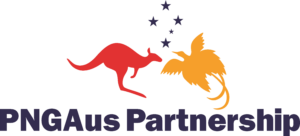Publication on enhancing agricultural value chains.
|
|
|
Type
Themes
Regions/Countries
Year
Language
Diao, Xinshen; Dorosh, Paul A.; Escalante, Luis Enrique; Pradesha, Angga; Junyan, Tian. 2024
Fang, Peixun; Gimiseve, Harry; Mukerjee, Rishabh; Schmidt, Emily; Zhang, Xiaobo. 2024
This paper explores the unique challenges and opportunities within PNG’s poultry sector using a "growth diagnostic" approach (pioneered by Rodrik, 2010). Through interviews with key stakeholders across the poultry value chain, we found that while high feed costs persist as a significant challenge, poultry farmers have yet to adopt additional cost-reduction strategies, such as establishing small-scale regional feed mills, utilizing local feed ingredients, and diversifying feed and input imports. An intriguing puzzle of PNG’s poultry sector is the limited number of small-scale producers successfully transitioning to medium-scale operations. This primarily stems from high transport costs and restricted access to input and sales markets. The challenges of marketing chicken in PNG have received less attention than production. Drawing on the experiences of successful models in other countries and considering the specific situation of PNG's poultry sector, fostering poultry production and processing clusters (e.g., in Lae suburban areas) emerges as a potential strategy to address production, transportation, and marketing constraints. By concentrating production, value chain clustering can enhance access to essential services (e.g. slaughtering and cold storage), improve market access, and reduce overall costs. While clustering holds promise for PNG’s poultry value chain, its success hinges upon joint action between the public and private sectors, as well as NGOs operating within the value chain.
Fang, Peixun; Benny, Dickson; Ovah, Raywin; Roberts, Arthur; Schmidt, Emily; Solomon, Elly. Washington, DC 2023
Objective: There is a lack of value chain studies to understand the feasibility of expanding the local mini livestock feed mill model in PNG to increase poultry feed supply in underserved areas. This study builds from earlier work on rural livestock feed infrastructure programs, and aims to fill the knowledge gap on the opportunities and constraints for expanding domestic livestock feed production and distribution via rural mini feed mills.
Method: The International Food Policy Research Institute (IFPRI) and the National Agriculture Research Institute (NARI) conducted in-depth qualitative interviews with 8 mini mills and 13 poultry farmers across 4 highland provinces during October and November 2022. We synthesize the interview transcriptions of the qualitative interviews in tandem with quantitative analysis of food consumption and agri-food trade data, as well as the authors’ own field observations in this paper.
Results: The in-depth interviews showed that the poultry farmers who purchased from local mini feed mills substantially lowered their feed costs, resulting in greater gross profits compared to rural poultry farmers that only sourced feed from commercial feed suppliers. However, the mini feed mills that we interviewed outlined a series of challenges in sustaining rural feed mills in PNG. The main challenges of running a successful mill included feed mill equipment procurement, electricity reliability, reliable raw ingredient supply, mini mill retailing to secure a client base, and adequate information about feed formulation. We identified two potential approaches that have overcome many of the identified challenges, that could be replicated and adapted to expand mini feed mill operations in the Highlands. The first approach is a farmer cooperative model that incorporates credit and feed delivery services to cooperative farmers. In doing so, they are able to better estimate volume demand for processed feed and accommodate feed production accordingly. The second approach follows a lead firm model, whereby a local farm supply retail outlet is expanding its business to include livestock feed production and supply, overcoming equipment procurement constraints given their previously developed business model focused on farm implement supply. Our evaluation provides detailed costs and benefits of both approaches for potential expansion of these livestock feed producer and distributor models.
McDermott, John, ed.; Swinnen, Johan, ed.. Washington, DC 2022
In COVID-19 & Global Food Security: Two Years Later, the editors bring together contributions from new IFPRI research, blogs, and the CGIAR COVID-19 Hub to examine the pandemic’s effects on poverty, food security, nutrition, and health around the world. This volume presents key lessons learned on food security and food system resilience in 2020 and 2021 and assesses the effectiveness of policy responses to the crisis. Looking forward, the authors consider how the pandemic experience can inform both recovery and longer-term efforts to build more resilient food systems.
Schmidt, Emily; Dorosh, Paul A.. Washington, DC 2022
Kosec, Katrina; Schmidt, Emily; Carrillo, Lucia; Fang, Peixun; Ivekolia, Mark; Ovah, Raywin. Washington, DC 2022
Kosec, Katrina; Schmidt, Emily; Carrillo, Lucia; Fang, Peixun; Ivekolia, Mark; Ovah, Raywin. Washington, DC 2022

